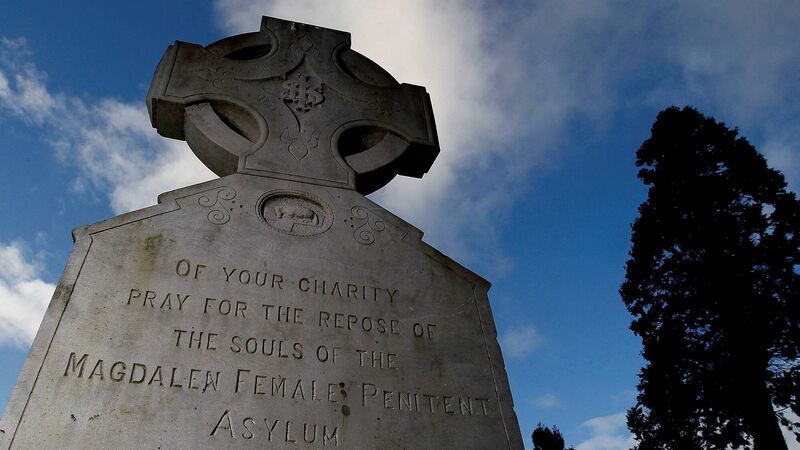'They feel badly let down': Institutional abuse survivors grow old waiting for the State to act

A memorial plaque to victims of the Magdalene Laundries in Glasnevin Cemetery, Dublin. Picture: Julien Behal/PA Wire
There were just a handful of TDs in the Dáil chamber when proceeding opened soon after 9am on January 25 last.
Sinn Féin education spokesperson Donnacha Ó Laoghaire stood to ask the Education Minister Norma Foley about the plight of survivors of institutional abuse.













